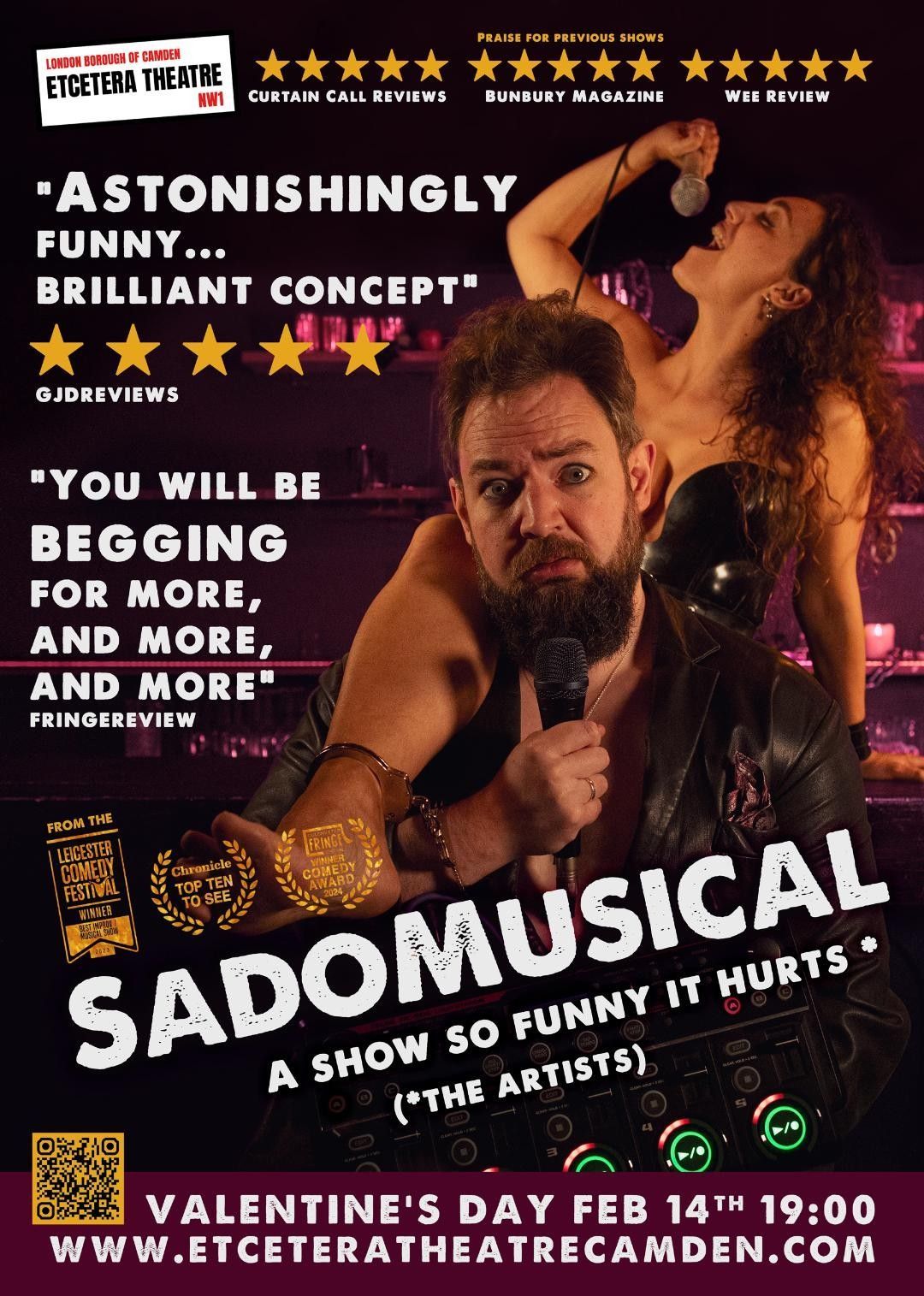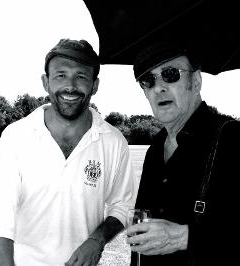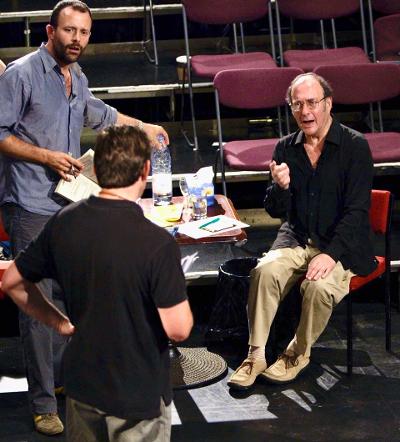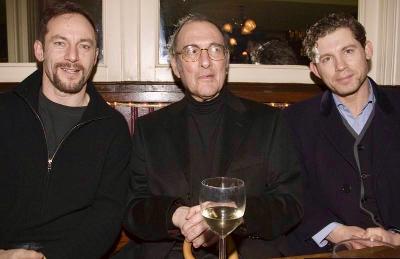Hello Harry, delighted to have experienced one of your workshops myself (hosted by White Bear Theatre). I’m particularly interested in Absurdist theatre right now and I wondered how you would describe Harold Pinter’s genre of theatre?
In the end Pinter is a category and a dramatic world unto himself. Pinterland is quite unlike any other dramatic landscape, despite people’s relentless efforts to pigeon-hole him as one familiar thing or another. Absurdism in theatre probably sought to make a point about twentieth century life, under the intellectual influence of existentialism, surrealism, what have you. Perhaps because of his apprenticeship as an actor in an era where theatre was dying, Pinter was more interested in risking something new, appropriating language to create onstage the kind of everyday weirdness he encountered in real life. As a poet, he found new ways to compress incredible energy and tension that is psychologically realistic, but simultaneously heightened and poetic. Not unlike how we experience life in a dream, perhaps.
Is this what drew you to Pinter and his dramatic work?
I was certainly blown away as a teenager when I saw Ralph Richardson and John Gielgud revelling in precisely that weirdness in NO MAN'S LAND. I didn’t understand a great deal of it, but the style, the relish of those actors in performance was totally compelling. Ignorant as I was, I knew instinctively I was watching something of the highest quality. The swearing was hilarious too, which made it funny to a teenager! Of course those two were among the most skilled actors in the world at manipulating language vocally in order that deep, unseen levels of subtext and nuance were exposed. Unforgettable! And the Granada TV version is on You Tube, so please don’t take my word for it!
Fascinated to hear that the two of you were like father and son. How did this special relationship come about?
Through time, more than anything, I suppose. We met when I joined Harold’s cricket club Gaieties CC when I was nineteen and he was fifty. Fifty’s an age where a certain kind of father might hope to deepen his relationship with his son (or indeed become a mentor to a younger man). Harold and Daniel (his own son) were getting along less and less successfully. And my dad and I weren’t exactly close. The longer we knew one another, the more comfortable and trusting Harold and I were with one another. So I think it just very naturally evolved into a loving bond. We didn’t talk about it as such, but that’s the point — we didn’t need to. It’s just what happened.
Having watched your Channel 4 documentary film on Pinter, I noticed that he was very commanding. Whatever anyone said, he would often correct them with an extremely astute comment. Where do you think this decisiveness comes from?
True authority is so rare in our current public life, when you’re in its authentic presence you certainly notice it! According to his school mates and teachers Harold always had authority. He did start writing poetry at the age of twelve, so he had a lot of practice at being an author! But his natural authority, the power of his presence, the integrity of his character — these qualities were simply innate; apparently he brought them with him from wherever it is we journey into this world.
It leads me on to a question about the characters in his plays. It seems to me that there is often a character who is telling another character what they are like, dictating who they are. Existentialist philosopher Sartre believed that we shouldn’t allow other people to dictate who we are. We should take responsibility for ourselves and our own lives. Is this something Pinter was concerned with?
Without a doubt. Many of his characters, especially in the early plays, are people who you could say are sleepwalking through life, possibly avoiding facing some aspect of reality that is just too much for them. Harold understood that while this may be natural and understandable, nevertheless it leaves a person open to aggression and invasion from hostile forces. You may have to fight for your life at the drop of a hat, so you’d best be awake and alert. Innocence won’t save you. I mean, it’s impossible to forget in this context that Pinter was Jewish. He knew perfectly well what had happened to Europe’s innocent Jews, to say nothing of what would have happened to the UK’s Jews had Hitler crossed the channel.
What other major things do you believe Pinter was concerned about and raised through his plays?
The human right to freedom was at the heart of Pinter’s philosophy: freedom to love, to speak truth, to express oneself creatively, to resist oppression. The abuse of power horrified Pinter. He felt compelled where possible to defend and protect those who were under the boot of tyranny. He used his voice and his indignant rage to hold bullies and tyrants to account wherever he could, even if only on stage.
You mentioned in your workshop that you believed Pinter was firstly a poet and this was reflected in his work. How does this manifest itself in his plays?
He really loves the English language. None of his grandparents spoke English well, and so there is a sense of Pinter discovering and falling in love with the power and amazing potency of English. This grows as he is introduced to Shakespeare, Webster, Dylan Thomas, many other writers. The poet in him loved both linguistic excess, and the power of economy (maybe he picked that up also from reading the works of his literary hero, Samuel Becket); how a poet can create the most impact with the fewest words; how it is possible to compress complex emotion into an essence (also how repetition generates tension and weirdness). Perhaps ultimately, he is obsessed by the power of silence, those intense moments in life where language itself isn’t adequate, and what’s not said somehow becomes more potent and profound that what is.
You and I both agree that we often see new writing plays which are very self-explanatory which isn’t very theatrical. What might we see in a Pinter play that we could call theatrical?
There’s a sense of the mythic in Pinter. Look at THE ROOM, his first play, written in two days. It climaxes with a sudden and shocking racist murder, and the leading character spontaneously loses her eyesight! The audience leave the theatre totally stunned and bewildered, with their molecules re-arranged. That’s the true power of theatre: to drop the audience out of normal time and space into our collective mythic imagination, and, from that stranger, more eternal and timeless place, take them on an astonishing journey of discovery. When the curtain falls the characters, the audience and the actors are never quite the same again. In recent times I have observed a tendency for certain theatres to programme material that plays to the fashion of the day. Maybe this sells tickets, but it makes for very predictable and untheatrical evenings at the theatre…
Some of Pinter’s plays are rather difficult to comprehend. Coming back to philosophy there is the idea of ‘thrownness’. We are all thrown into the world without any rule book. There is something here about the world of Pinter, we are thrown into it. Is there a rule book?
Harold Pinter never messes with the audience’s minds just for the sake of it. He is never deliberately obtuse or confusing. On the other hand, he did remark that if he had to identify a fault in his own writing it would be that he possibly cut too much. Certainly, he refuses to explain, believing that his characters always leave the audience clues as to what they want. That obsessive cutting away of the inessential is the hallmark of a poet, rather than of a clever intellectual trying to make the audience feel dumb. He actually treats the audience with great respect, in as much as he keeps ahead of them, rather than letting them get ahead of the story, as so many other playwrights do. There’s no rule book, but it helps to see and read his plays on the page, in addition to seeing them onstage. Perhaps there is an unwritten rule book of a kind for the actors working on a Pinter play: they must willingly surrender to what’s on the page. Resistance is futile. One must simply serve the play and the playwright. This is both humbling and empowering. Once an actor can pass through the eye of Pinter’s needle, she or he will discover a marvellous and rare freedom. I recently interviewed Dame Penelope Wilton and she spoke very eloquently about this.
Personally, I recommend your workshops on Pinter, particularly to playwrights and actors, but anyone who loves Pinter’s work or wants to know more can benefit. The most fascinating aspect was picking apart a scene from one of Pinter’s plays with the help of the actors taking part in the workshop. It all begins to make sense in a profound and beautiful way. What’s top of your list when approaching a scene with actors?
Perhaps the first thing is to help the actors to get over any sense of feeling intimidated by the fact that it’s Pinter. That reverence is no use to anyone, but it’s getting worse. It’s great writing to be sure, but in some ways it’s no different from any other piece of good writing: something is happening, and our job is to figure out what that is, and then make it happen with the highest possible stakes for an audience who’ve never seen it before. Ultimately the rehearsal process with Pinter is one in which the actors have to become bloodhounds sniffing for clues, listening acutely both to what’s happening inside themselves and to what’s happening — externally, dramatically — with their colleague. In rehearsal we spiral down into what’s really happening in the scene, and it’s a wonderful adventure, often it has the marvellous feeling of interacting with a mystery. Generally, actors are amazed by what they end up with, and how far they are from where they thought they’d be!
Harold Pinter with Lee Evans & Jason Isaacs who starred in THE DUMB WAITER in 2007 directed by Harry Burton (Photography Dan Wooton)
Finally, got to do it, what’s your favourite Pinter quote?
“When the curtain goes up on one of my plays, you are faced with a situation, a particular situation, two people sitting in a room, which hasn’t happened before, and is just happening at this moment, and we know no more about them than I know about you, sitting at this table. The world is full of surprises. A door can open at any moment and someone can walk in. We’d love to know who it is, we’d love to know exactly what he has on his mind and why he comes in, but how often do we know what someone has on his mind, or who this somebody is, and what goes to make him and make him what he is, and what his relationship is to others?”
Run At It Shouting produce many workshops and other events. Guests have included Mike Leigh, Bruce Robinson and Amma Asante. Details of all the events are on the link below.
HARRY BURTON
Harry directed a West End production of THE DUMB WAITER, starring Lee Evans & Jason Isaacs in 2007. The following year Channel 4 showed his unique documentary WORKING WITH PINTER. He also directed Mark Rylance in Pinter's ART, TRUTH & POLITICS at the Harold Pinter Theatre. He teaches at Drama Centre in London and leads workshops and lectures on the work of Harold Pinter internationally.
Harry’s website https://www.workingwithpinter.com











